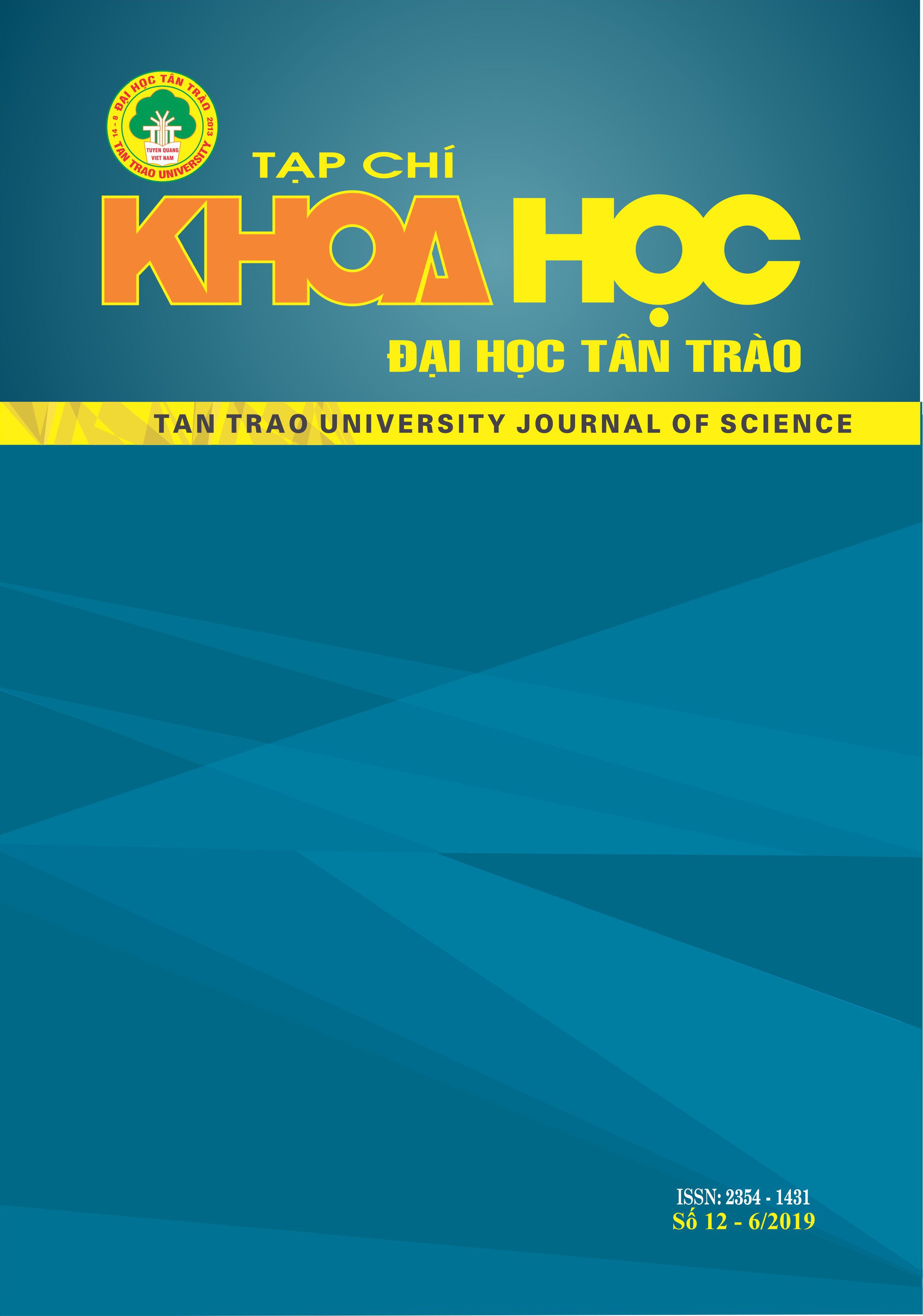Một số chiến lược từ chối trực tiếp lời mời của người Mỹ
DOI:
https://doi.org/10.51453/2354-1431/2019/230Từ khóa:
Hà nh vi từ chối; chiến lược từ chối; lá»i má»i; chiến lược từ chối trá»±c tiếp; hà nh vi từ chối lá»i má»iTóm tắt
Hành vi từ chối, giống như các hành vi khác, xuất hiện ở tất cả các ngôn ngữ. Nó được dùng để biểu thị sự không chấp nhận một thay đổi nào đó theo hướng đã được đề xuất (như yêu cầu, đề nghị, mời rủ, gợi ý …) trong quan hệ giao tiếp hội thoại. Dưới sự tác động của một số nhân tố như vị thế xã hội, giới tính, tuổi tác…, khi từ chối lời mời, người Mỹ có thể lựa chọn chiến lược từ chối trực tiếp hay chiến lược từ chối gián tiếp. Trong bài viết này, tác giả trình bày một cách giản lược về những kết quả mà chúng tôi đã thu được khi nghiên cứu về các chiến lược từ chối trực tiếp lời mời thường dùng của người Mỹ.
Tải xuống
Tài liệu tham khảo
1. Beebe, L. M., Takahashi, T., & Uliss-Weltz, R. (1990), Pragmatics transfer in ESL refusals, Newbury House, New York.
2. Brown P. & Levinson S. (1978), Universals in language usage: Politeness phenomena, Cambridge University Press.
3. Hoàng Phê (2006), Từ điển tiếng Việt, NXB Đà Nẵng, Đà Nẵng.
4. Searle, J. R. (1969), Speech Acts: An Essay in the Philosophy of Language, Cambridge University Press.
5. Miranda, S. (2003), Oxford Wordpower, Oxford University Press, England.
Tải xuống
Đã Xuất bản
Cách trích dẫn
Số
Chuyên mục
Giấy phép

Tác phẩm này được cấp phép theo Giấy phép Quốc tế Creative Commons Attribution-ShareAlike 4.0 .
Bài báo được xuất bản ở Tạp chí Khoa học Đại học Tân Trào được cấp phép theo giấy phép Ghi công - Chia sẻ tương tự 4.0 Quốc tế (CC BY-SA). Theo đó, các tác giả khác có thể sao chép, chuyển đổi hay phân phối lại các bài báo này với mục đích hợp pháp trên mọi phương tiện, với điều kiện họ trích dẫn tác giả, Tạp chí Khoa học Đại học Tân Trào và đường link đến bản quyền; nêu rõ các thay đổi đã thực hiện và các nghiên cứu đăng lại được tiến hành theo cùng một bản quyền.
Bản quyền bài báo thuộc về các tác giả, không hạn chế số lượng. Tạp chí Khoa học Tân Trào được cấp giấy phép không độc quyền để xuất bản bài báo với tư cách nhà xuất bản nguồn, kèm theo quyền thương mại để in các bài báo cung cấp cho các thư viện và cá nhân.
Mặc dù các điều khoản của giấy phép CC BY-SA không dành cho các tác giả (với tư cách là người giữ bản quyền của bài báo, họ không bị hạn chế về quyền hạn), khi gửi bài tới Tạp chí Khoa học Đại học Tân Trào, tác giả cần đáp ứng quyền của độc giả, và cần cấp quyền cho bên thứ 3 sử dụng bài báo của họ trong phạm vi của giấy phép.






